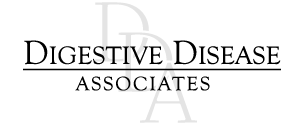Hiatal hernias occur when a membrane that passes through the diaphragm — the phrenoesophageal membrane — is weakened over time and a portion of the stomach pushes (herniates) through the membrane and remains in the chest cavity.
There are two types of hiatal hernias:
- Sliding hiatal hernia. This is the most common type and occurs when the space where the esophagus and stomach meet (gastroesophageal junction) slides upward into the space between the lungs.
- Paraesophageal hernia. This occurs when the gap in the phrenoesophageal membrane is larger, more of the stomach moves upward into the chest and the gastroesophageal junction remains below the diaphragm.
Symptoms:
A hernia itself usually causes no symptoms and is often discovered when a patient undergoes another procedure such as a chest X-ray or gastrointestinal endoscopy.
In the event that symptoms do occur, they may include:
- Chest pain*
- Heartburn
- Belching
- Reflux
- Shortness of breath*
Treatment:
Lifestyle changes:
- Eliminate or limit caffeine, alcohol, fatty foods, chocolate, citrus, spicy food, dairy
- Eat small, frequent meals
- Eat at least 2-3 hours before bedtime
- Eat slowly
- Lose weight if you are overweight
- Quit smoking
Medications:
- Over the counter antacids
- Prescription antacids
- H-2 blockers (to reduce the amount of acid produced in the stomach)
- Proton pump inhibitors (to reduce the amount of acid produced in the stomach and allow time for the esophagus to heal)
Surgery:
Surgery for a hiatal hernia is typically reserved for emergency situations. The most commonly performed surgery for these conditions is fundoplication. During this procedure, the upper portion of the stomach is wrapped around the lower portion of the esophagus in an attempt to prevent stomach acid from backing up into the esophagus.
Dr. Suman Kaur, a digestive disease specialist and board-certified gastroenterologist, recommends that if you experience chest pain, seek immediate medical attention, especially if you have other signs and symptoms, such as shortness of breath or jaw or arm pain. These may be signs of a heart attack.
Note: This information shouldn’t take the place of a physician’s care. Please see your physician or Dr. Suman Kaur with any questions or concerns: (630) 325-4255.
